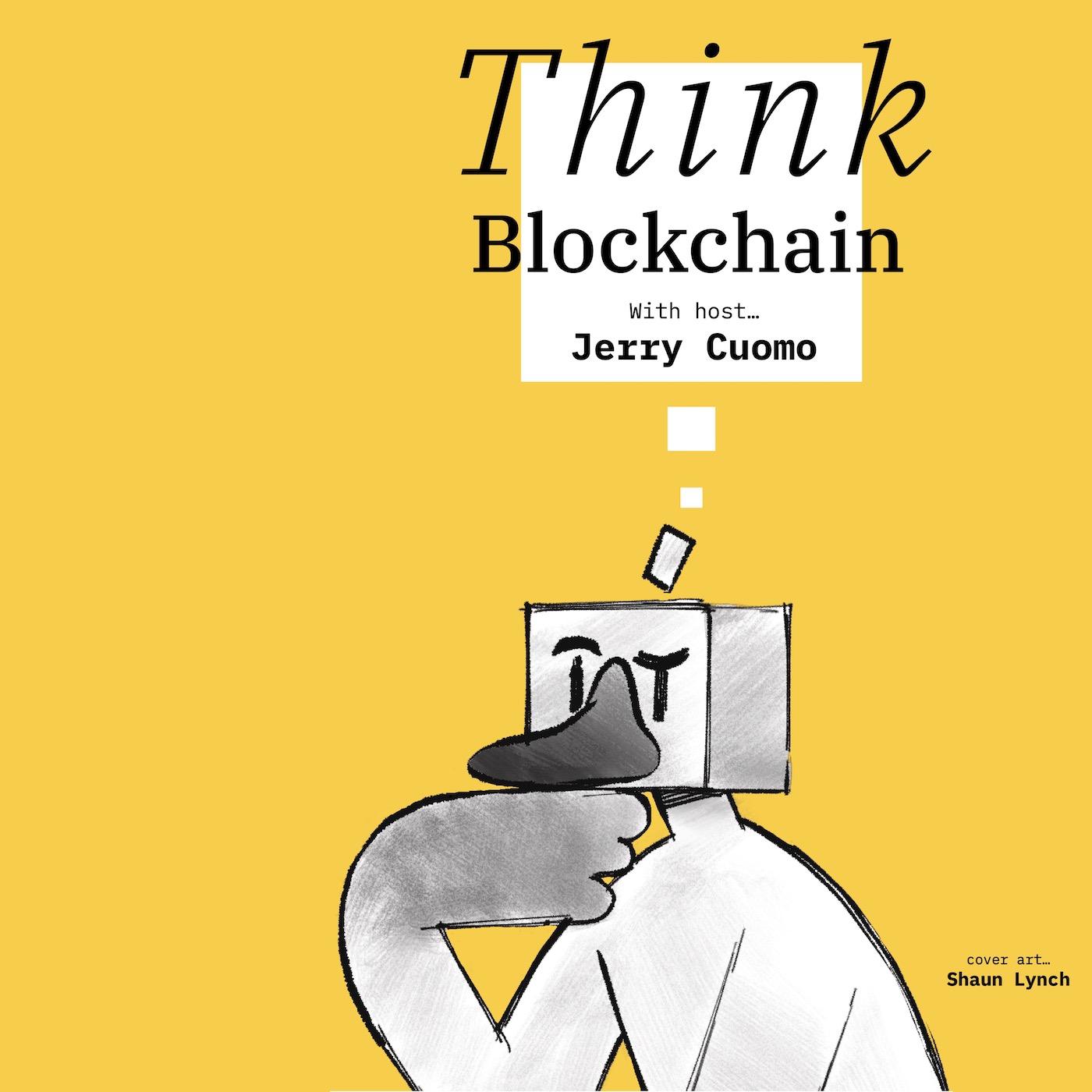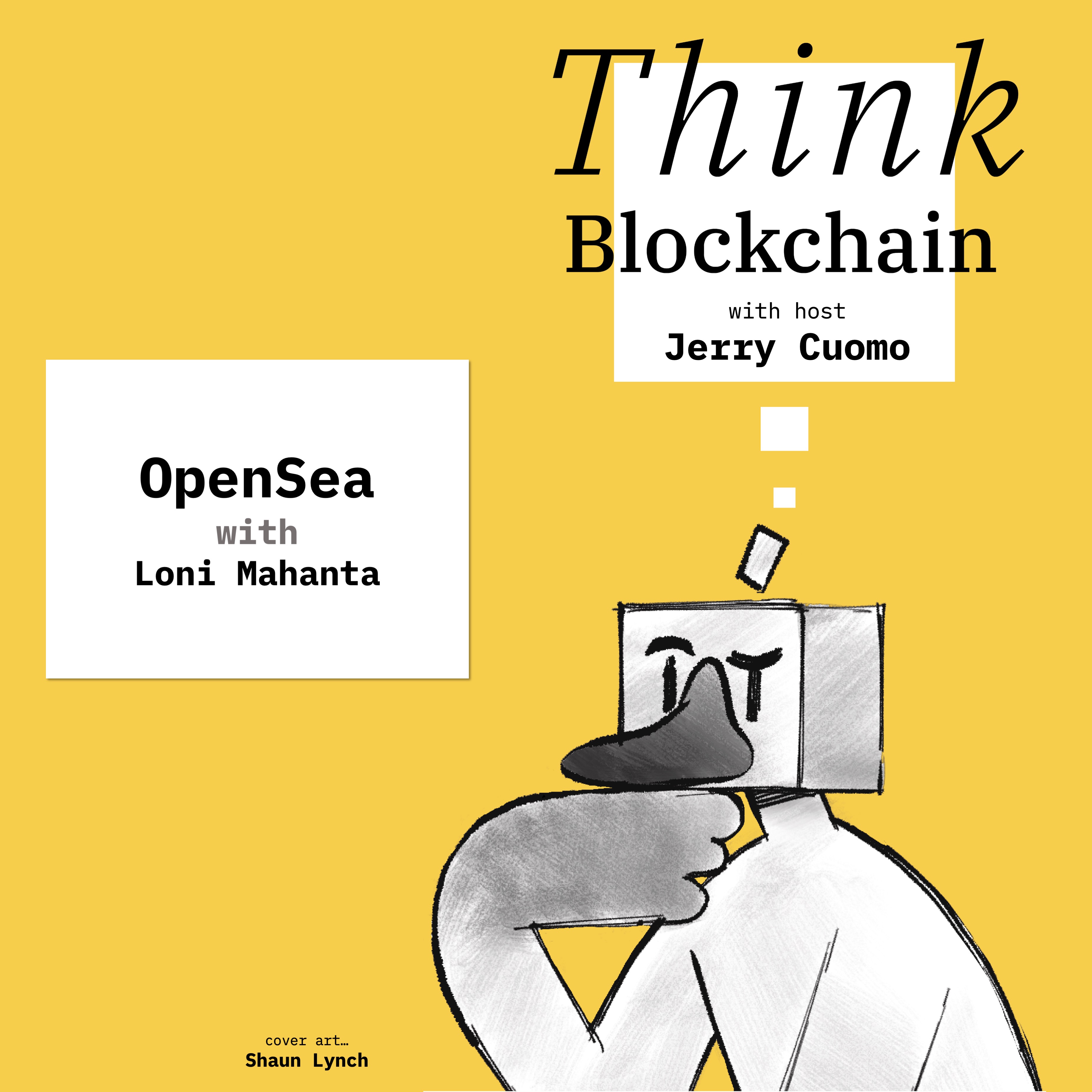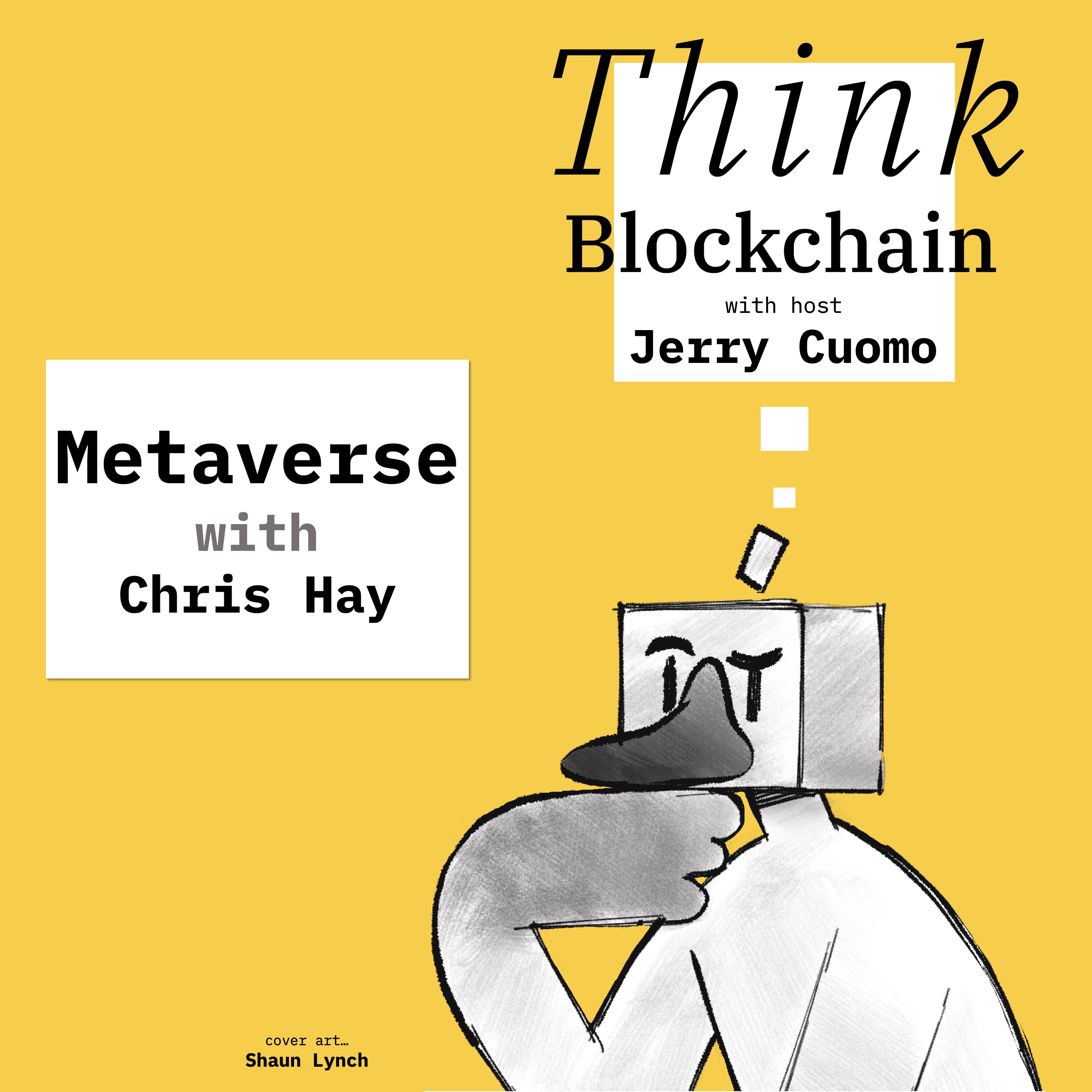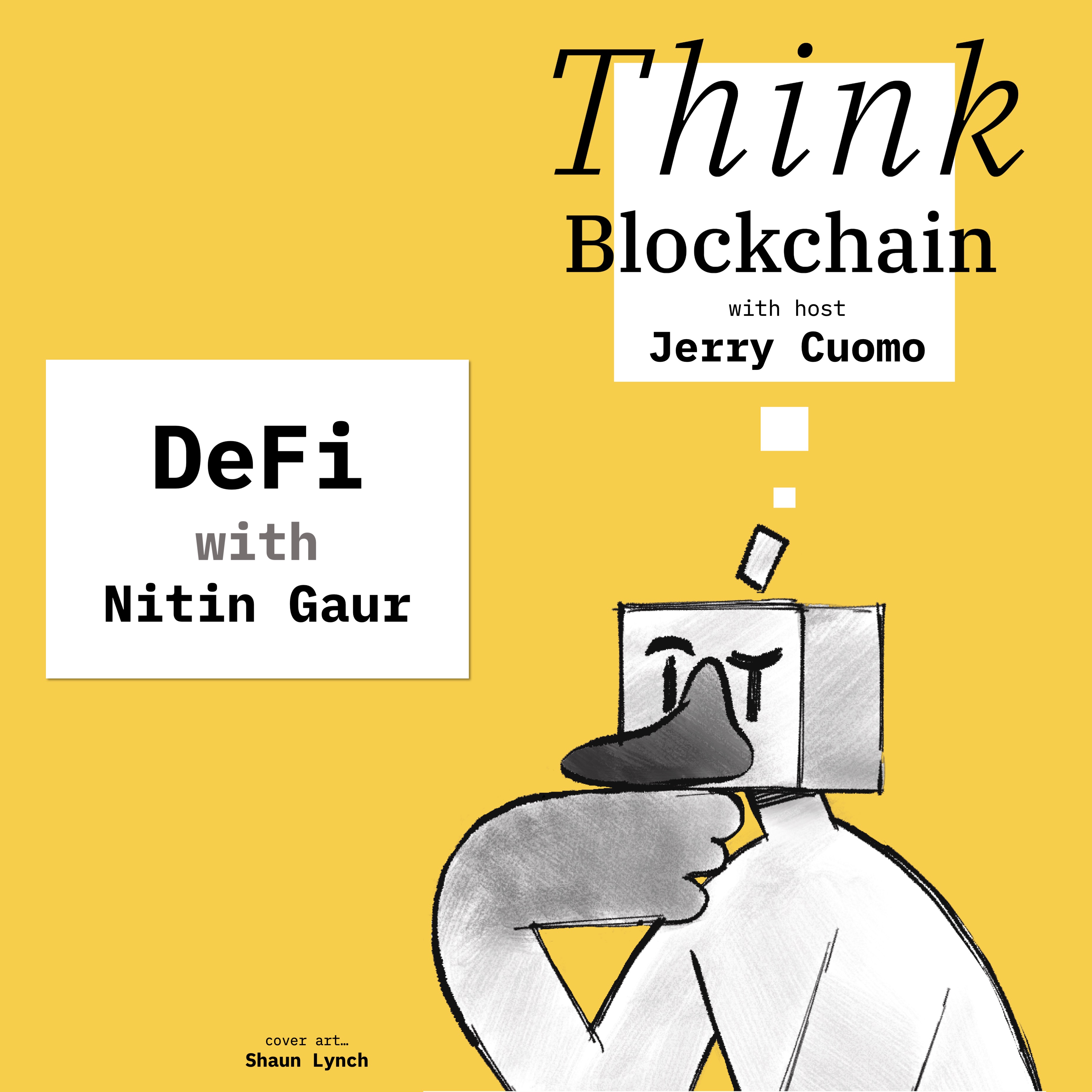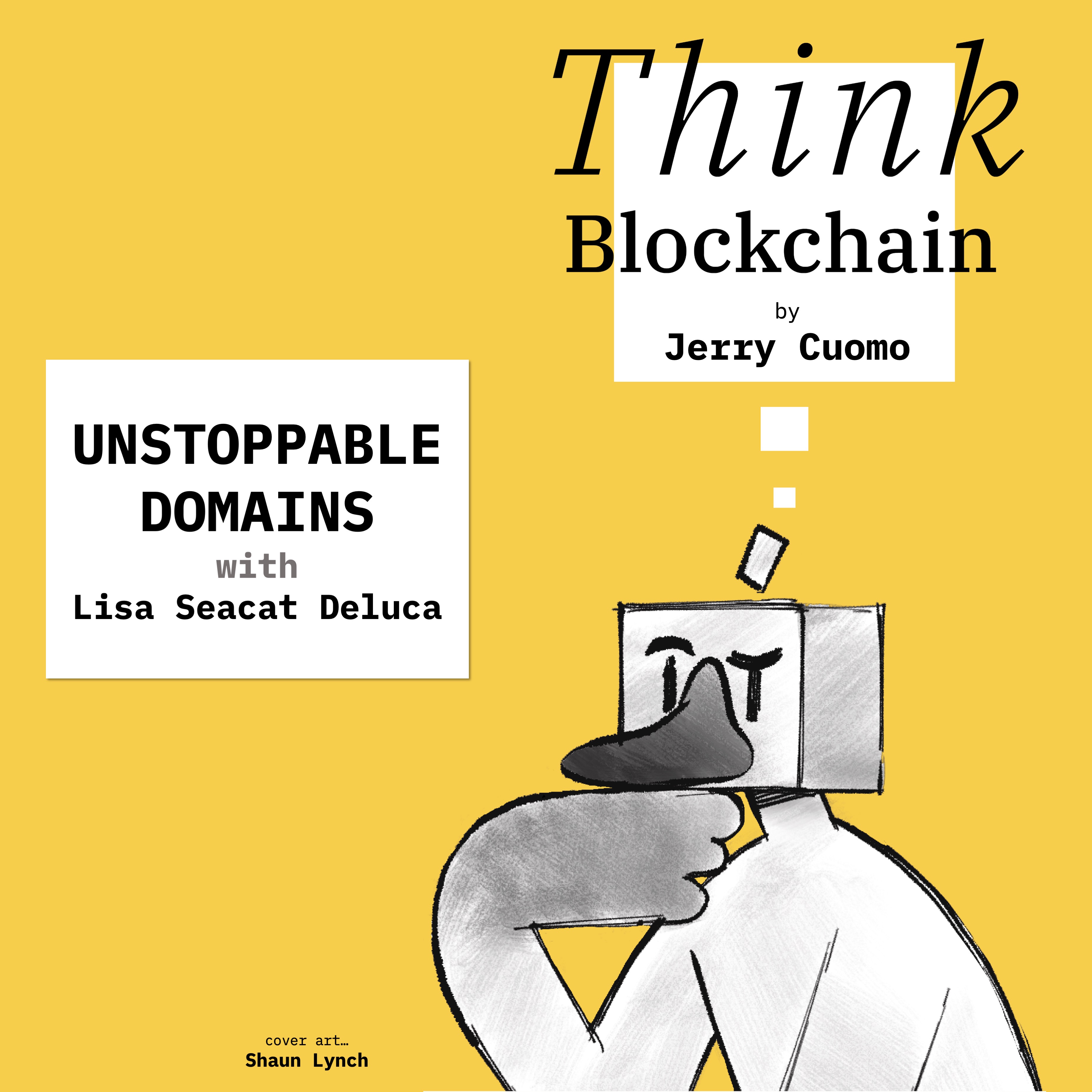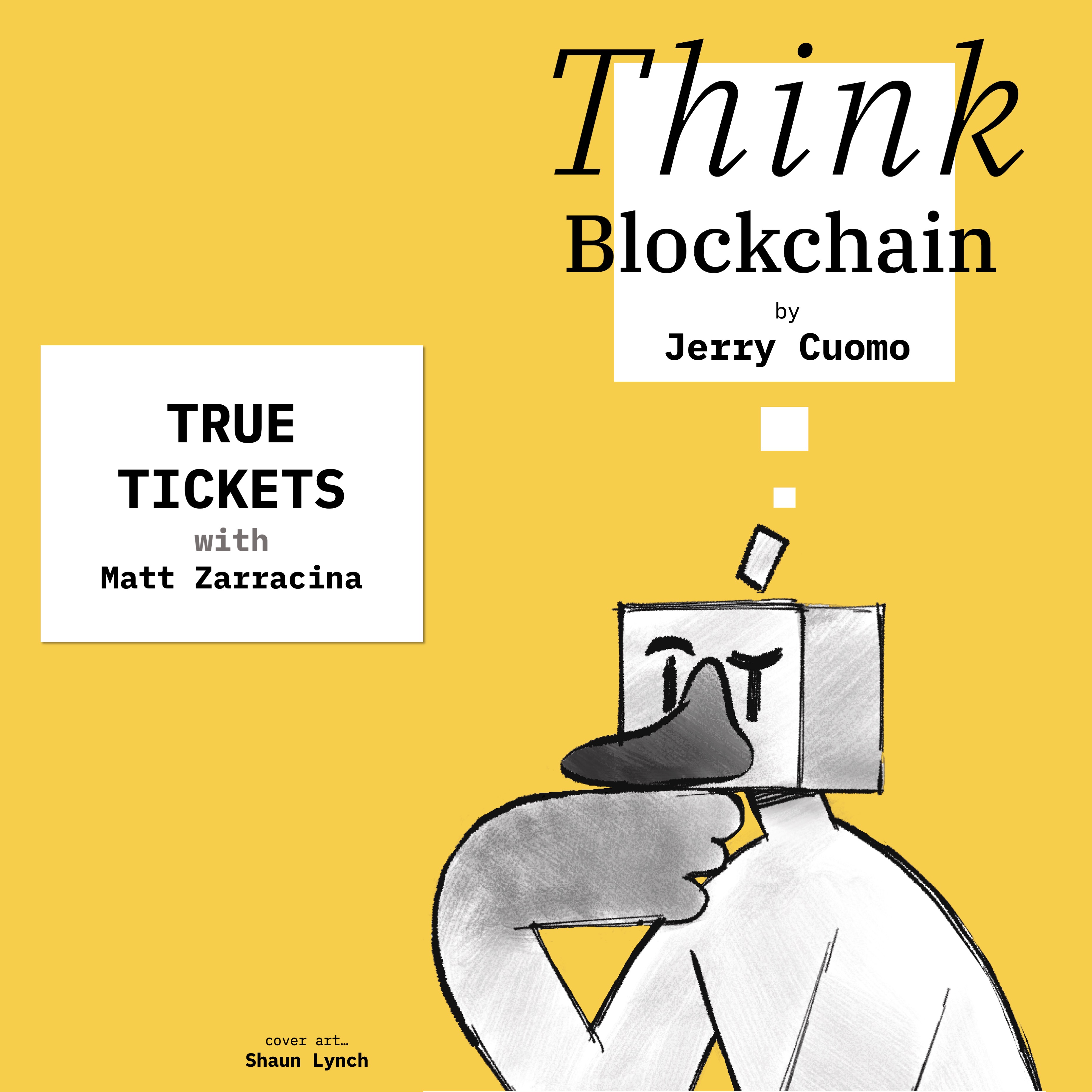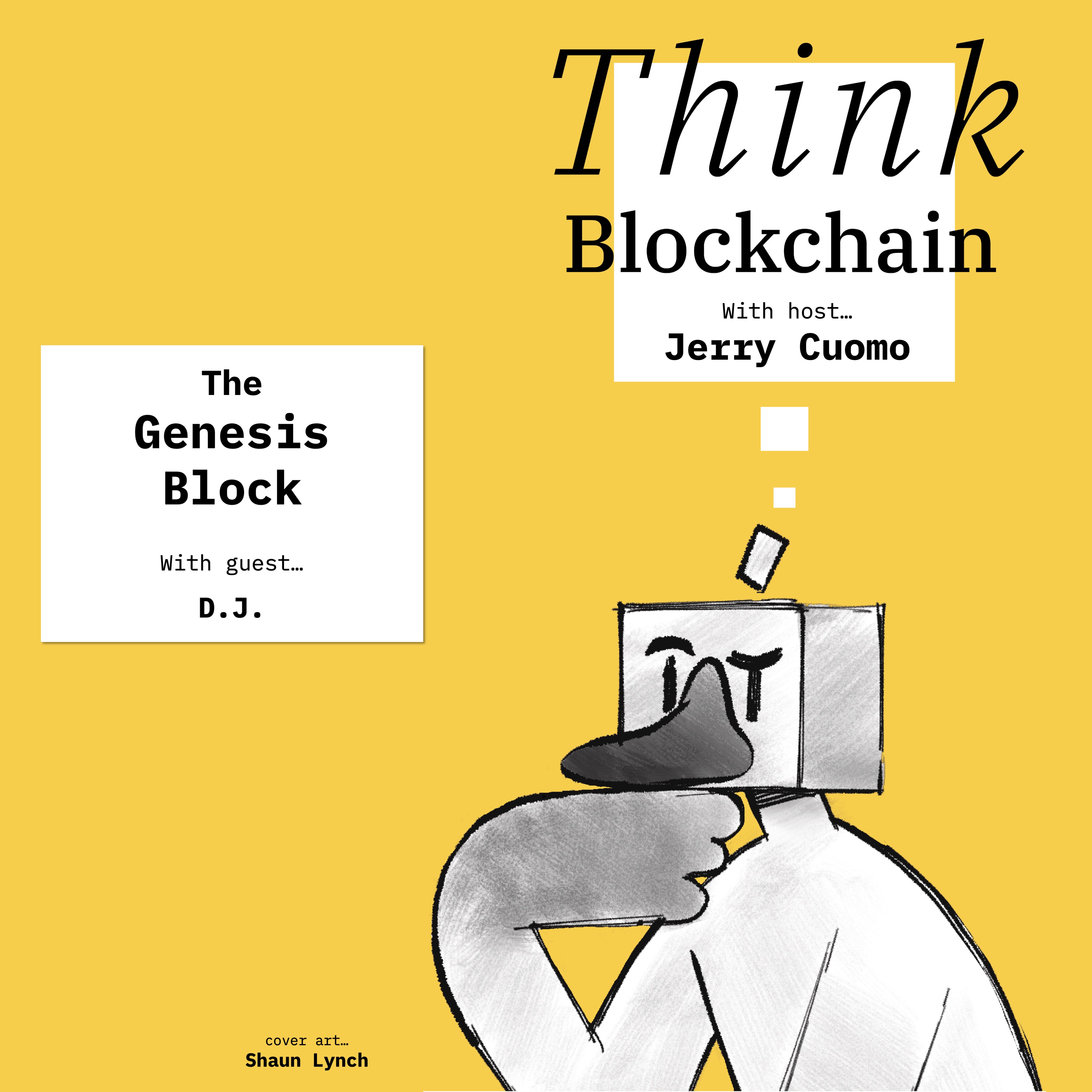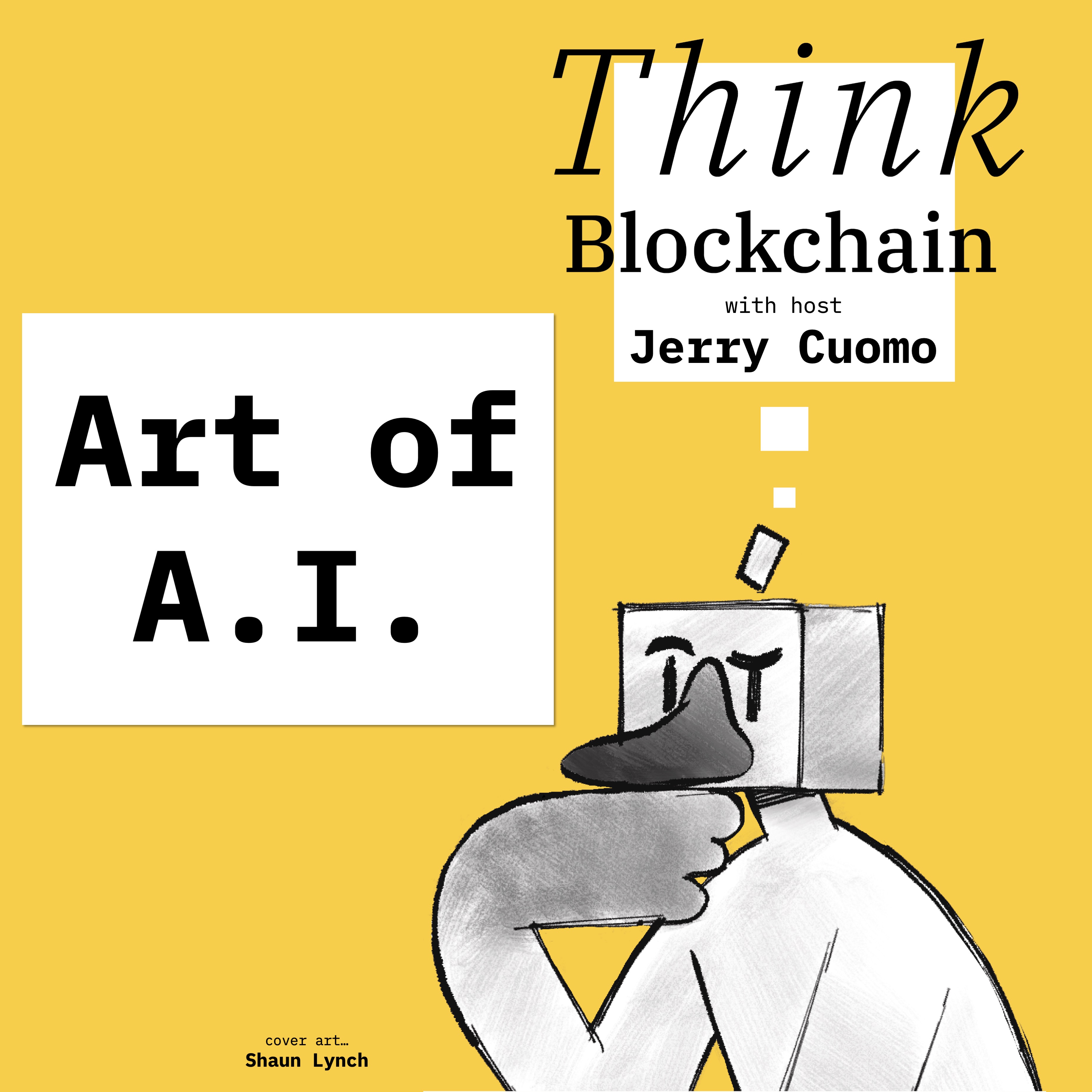OpenSea
- 0.5
- 1
- 1.25
- 1.5
- 1.75
- 2
DJ: You're listening to Think Blockchain with your host, Jerry Cuomo.
Jerry Cuomo: Thank you, DJ and welcome all to Think Blockchain, a podcast for those curious about blockchain's evolution to an ethical Web3 future. Okay, I'll admit it, I collect baseball cards. Been doing it since I was a little kid and while I haven't paid much attention to my collection recently, I have to say that when I thumb through my cards, it instantly brings me back to my childhood, almost like a time portal would. I remember my uncles who would buy us the cards, the music on the radio, my cousins and friends who sometimes tried to scam me out of a card or two, but it made me stronger and wiser. I know, it's really not rational and perhaps I'm a bit of a fool. After all, they're just pieces of cardboard. Well, that's not true. Although it's hard to explain, to me they're much, much more. Fast forward back to today. Non- fungible tokens or NFTs are an emerging class of digital assets that are perhaps the trading cards of the Web3 era. In a recent news line, the company Nike was reported to have made over$ 185 million dollars in NFT sales so far, including, but not limited to, digital sneakers. A bit of a fool's game with risks and scams, perhaps, but when I catch myself eyeing that new Wayne Gretzky NFT, I think maybe fan and brand loyalty is a game many of us enjoy playing regardless of the decade. My guest today has helped me broaden my thinking about NFTs, going way beyond what they are today and testing what they can be and represent in our highly digital world, including our own digital identity as a type of a non- fungible asset. Today, we are lucky to have Loni Mahanta, VP of Policy and Government Affairs at OpenSea, where she is evolving the world's thinking of digital assets at the intersection of law, technology and policy. With that, I'd like to welcome Loni to Think Blockchain. Welcome, Loni.
Loni Mahanta: Thank you so much for having me.
Jerry Cuomo: Our pleasure here. Let's just jump right in and I want to ask you the first question, which is simply, why do you love what you do?
Loni Mahanta: Sometimes I think that I have the best job that I could imagine, at least from what excites me from an intellectual and professional perspective. What I have spent maybe the last decade really focused on is the intersection of law, policy and technology.
Jerry Cuomo: Wonderful.
Loni Mahanta: When I was thinking about my next career move about six to nine months ago, it became very clear to me that if I wanted to be continuing work in that space, I needed to be involved in crypto and Web3. That very quickly brought me to OpenSea, getting to do what I'm doing here.
Jerry Cuomo: That is interesting. One of the cornerstones of Web3 are digital assets as defined through non- fungible tokens or NFTs. What is an NFT and what are the benefits and breakthroughs?
Loni Mahanta: I'm going to start from a non- technical perspective because it really helped me understand what NFTs were. I'll take a step back and say, we see a lot of stuff in the media around NFTs, around pictures, cartoon pictures. For me coming into the space, I was trying to wrap my head around what it all meant, why people were spending a lot of money for pictures. I didn't quite get it. When I dug in, what became clear to me was the right way or one of the ways that helped me understand what NFTs are, is thinking about NFTs as the first building blocks for consumer ownership and identity in the new web, Web3, the terminology that we're hearing. These NFTs being used for digital identity and ownership, they allow this digital ownership to attach to the owner and move across this decentralized Web3 landscape.
Jerry Cuomo: That is interesting.
Loni Mahanta: These first use cases that we're seeing around art, collectibles, that's the first place these things have started. There's so much more to come and if you understand or think about NFTs as this underlying technology for digital identity and ownership, you can start to see the full possibility of where the full NFT ecosystem may be going.
Jerry Cuomo: I really like that thought, Loni, because it seems that ecosystems form around centralized entities. Starbucks, avid coffee drinker, I mentioned this on the last episode, but my Starbucks loyalty tokens are only good within that ecosystem. Perhaps OpenSea is that ecosystem, where you can actually have some cross pollination between ecosystems so I can exchange my Starbucks points for airline miles or vice versa. Is that crazy offbeat or is that kind of close?
Loni Mahanta: I think that's spot on. One of the ways that I think about this, and again, that helped me understand it, is I think about closed ecosystems and real money that people are spending today in closed ecosystems, but that do not really accrue to the individual. They are stuck in that ecosystem. One example that made a lot of sense to my 10- year- old daughter was she uses some of her allowance to buy items in Roblox. I asked her what would happen if she lost her password, or was heaven forbid, kicked out of the account or something like that? Would she still be able to utilize the things that she bought in that ecosystem? Right now, for more traditional gaming assets, no, she wouldn't. If she were purchasing NFTs in a gaming ecosystem, those would accrue to her outside of the ecosystem that she purchased it in. That, for me, helped clarify this idea of ownership, of it accruing to the individual, as opposed to being stuck in a more closed system.
Jerry Cuomo: With the theory there's movement, I can take that with me wherever I go on the internet, in theory.
Loni Mahanta: There's still a lot to be built. To be very clear and fair here, a lot of these other gaming ecosystems within which NFTs will be moveable and freely moveable, a lot of that still has to be created. I think we're in this interesting moment where we're talking about a new technology, we're talking about current use cases, but we're also theorizing and speculating about what might come in the not too distant future.
Jerry Cuomo: Bored Ape Yacht Club, can you explain it?
Loni Mahanta: This I think is super interesting because that question I spent a lot of time trying to wrap my head around this. What is happening here? I think what was a big light bulb for me was actually thinking about it from the perspective of a creator and an artist. I started spending a lot of time over the last couple months talking with creators and artists, trying to understand what NFTs have meant for them and why they're engaging in this. While there's a wide variety of people, there are big entities like Yuga Labs that put out Bored Apes; there're all kinds of small, independent artists that are engaging around NFTs as well. When I talk to these artists, a lot of people are artists of all kinds, graphic designers, fashion illustrators, art teachers. There's a few themes that came out from these conversations. Some of these are simple and obvious and some less. One is just the ability to earn instantly. If you're an artist and you're working with a big brand and it takes four months to get paid, it makes a big difference right now if you can be paid instantly. I think more interesting are around downstream creator fees. When you create an NFT, you can code in the ability for any subsequent sale to give a cut of that future sale back to the artist. That is not something that is automatic and easy to execute with a piece of art. I spoke with one artist who sold a piece of art through a gallery and what was so interesting he said he had a paper right to any cut of any future sales. He didn't get it. He is just a small single guy. What way did he have to enforce that right. It was a basically meaningless right. Very different in the NFT ecosystem and time and time again, I heard from artists that these downstream creator fees, sometimes people call them royalties, are a game changer, paradigm shift, really fundamentally different. There was an artist on the Solana chain who told me his first piece of art that he sold, sold for$ 500. He was unbelievably excited about that. The second time it sold, it sold for$ 60,000 and he got a cut of that.
Jerry Cuomo: That is amazing. Loni, this art example reminds me that we've seen this behavior before. Consider athletes and their ongoing labor disputes with the team owners. It's been happening since the 1890s. The sport players demand more say and control in business negotiations, as well as their fair share of the profits. Also, we see similar labor shifts in entertainment, music, think Spotify and Band Camp. Now it's the digital asset era. We're seeing it happen to data creators, but this time perhaps digital rights management software and digital contracts can help automate the ownership and sharing process. This is interesting.
Loni Mahanta: Actually the sport example that you just gave is a great illustration I think of the last point that I've heard time and time again, which is the ability for individual creators, athletes, artists, musicians, to create a direct relationship with their fans and to be the recipients of the value that they create of that engagement with the fans. Back to sort of an art example I was speaking with another artist who mentioned to me that the first time she sold a piece of art to an art gallery, she was so excited. The art gallery took 50% of the sale proceeds, super standard. Very big difference when you have these platforms like OpenSea, where I work, using a two and a half percent commission and that being the baseline. The lower amount to take rate is very significant. I think even more importantly than that is that NFTs facilitate a way for individuals to create this direct relationship with their fan base or supporters, their patrons that is not intermediated by some other large platform. You can imagine another artist, she's a fashion illustrator, she told me that she had a pretty big following on one of the major social media sites. That social media site changed the algorithm one day, and it really impacted her ability to reach her fans. All of a sudden this place that was a way for her to earn and support herself was changed in a way that she had no control over. NFTs, on the other hand, gave her this direct relationship with her community. I think it's really hard. Another light bulb moment for me was recognizing that community and direct bilateral engagement is one of the key things that NFTs and Web3 facilitates
Jerry Cuomo: Makes so much sense. What does it take or should I say how hard is it to create an NFT? Can you tell us a little more about OpenSea?
Loni Mahanta: The first thing I'll start by saying is that OpenSea acts in a lot of ways as a search and find function and a place to help you transact. Everything that is happening on chain is not on OpenSea. We don't control what happens on chain. An individual can go and mint and create an NFT that they put onto Ethereum or into Solana or any other chain that they choose independent of any company or platform like OpenSea. Likewise, you can buy and sell separate from OpenSea. However, should you choose to use a platform like OpenSea we help make some of those things really easy. I helped, when first starting to explore OpenSea, my dad is an artist and so I was like," Hey, let's mint an NFT." We went through the process and it's really pretty easy. You have your piece of art that you have digitized or is already digital. It's a couple clicks of a button. There's a few mechanics that you have to go into, but a lot of the process is made easy through OpenSea should you choose to use those tools.
Jerry Cuomo: No solidity coding, or ERC-751, or.... None of that plays in if you don't want it to?
Loni Mahanta: No, exactly.
Jerry Cuomo: Has dad sold any?
Loni Mahanta: No, he hasn't. We've got a little bit more work to do, but I'm seeing him again in a couple months so we're going to finish then.
Jerry Cuomo: Good father- daughter time there. All right. Loni, you're the VP for Policy and Government Affairs at OpenSea. Can you talk to us a little bit about the emerging policies in this space?
Loni Mahanta: This is really where I spend my day to day, frankly. What's so interesting I've found is that there's a lot of interest among policy makers in DC around what's happening in crypto and Web3. I wouldn't say everybody is, there's a lot of people that are not really focused on this issue. They have a lot of things for every elected official to be paying attention to. For those that are engaged, they're very interested in what the opportunity of a lot of these new technologies are. However, even though there's a lot of interest, what I've found so far is that most of the focus is around the financial services side of the crypto ecosystem starting with stable coins exchanges, the specific currencies, and a lot of conversation around what types of assets are securities or commodities. Really the way I think about it is that the first focus has been around the financial services side of this world. What I think NFTs represent and where a lot of the rest of the Web3 world is going are really not around what are strictly construed of as financial services, but instead all the other things that exist in the world, but that are going to have digital versions. A lot of what I am explaining right now to policy makers or talking about is how NFTs are being used today, why they matter for artists today, but also that NFTs are really an underlying technology that can be used in so many different ways that totally have nothing to do with JPEGs and profile pictures. NFTs as receipts for physical items, NFTs for concert and event tickets, real estate, title, supply chain for fundraising, for non- profits to non- tradable items, where for personal identity and ownership like diplomas and certifications, and the reason all of those examples matter is because they really inform what a regulatory structure might or might not look like. If you think of NFTs as just expensive pieces of art that people are buying and selling to make profit. You might create a regulatory structure that doesn't allow for all these sort of other ways in which NFTs are being used.
Jerry Cuomo: My experience educating the folks on the Hill regarding blockchain, has always two sides. One is around payment, so Bitcoin takes all of the oxygen out of the room, which is okay, but a lot of education required on that side. Then it's all of the bad things that can happen. All of the cautions and concerns. Maybe you can spend a second on the risks around NFTs, what are the risks?
Loni Mahanta: We spend a lot of time working with our users and then also with other entities like governmental bodies and agencies to help thinking about how we can help keep consumers safe, because whether or not an item falls within the digital asset or financial asset regulatory space, we do all have an obligation to think about consumer protection and prevent against fraud and all the things that keep individuals safe. There's a lot of just really, I think, baseline education that needs to happen for consumers. Remember all these scams that have happened in the analog and Web2 world, there's going to be Web3 and there already are Web3 versions of those. There was this IRS scam where people would call and say," It's the IRS. You need to go and pay by going and buying gift cards at the Home Depot." There's Web3 versions of those or somebody calling being like," give me your pin number", versions of those now, which is," Hey, I'm with support for whatever company you need to show me your seed phrase so I can help resolve this issue for you." There's really a lot of simple education to help keep people safe so that they know how to make sure that they're not inadvertently clicking malicious links or falling prey to phishing schemes. Baseline education happens there. Then there's a lot of work that I think OpenSea is doing to help prevent against some of the things that are happening in the ecosystem like copymints, where somebody might just do an exact copy of somebody else's collection. We're using computer vision, image recognition, verified accounts. We're doing the things that we can on our end to help mitigate some of the problems that come from those actions.
Jerry Cuomo: Loni, you're not going to believe this, but we ran out of time. This has been awesome. I can keep going on this topic for so long. Thank you so much for joining us here on Think Blockchain. Really appreciate it.
Loni Mahanta: Thank you so much. It was really great to chat.
Jerry Cuomo: Okay. This episode is a wrap. I just had to try it just for fun. Right before this episode, I created a small test collection of blockchain Jerry NFTs on OpenSea. The link is attached to the description of this episode. Remember what Loni alluded to around consumer protection in this emergent space? I've also included a link to the OpenSea NFT security group for more details on what you should be aware of when you're buying, selling, and interacting with NFTs and how to do it safely, which takes me to one last thought. If a tree, or should I say a podcast, falls in the woods? Does it make a noise? Well, Think Blockchain has a few sponsors who will be helping us make some noise by providing support for marketing the Think Blockchain podcast and book. Since royalties from the book, and now the NFTs, are being donated to the American Cancer Society we want to get the word out and make some noise. This episode is brought to you by IBM. IBM continues to be a thought leader and world class implementer of blockchain solutions globally. Blockchain for business is IBM's thing. The Think Blockchain book is filled with examples like Food Trust, TradeLens and the New York Excelsior vaccine pass all built with IBM. IBM puts the think in Think Blockchain. I'm also proud to announce that this podcast is brought to you by Kaleido the blockchain business cloud. With Kaleido doing business on the blockchain has never been easier. Their zero gas NFT platform, institutional- grade digital asset solution, consortium as a service and side chain services allow enterprises to launch Web3 applications in a 10th of the time. Not only that, but for developers, Kaleido offers full support for Hyperledger Firefly, the industry's first open source super node, a complete stack for enterprises to build and scale secure Web3 applications. That's Kaleido delivering enterprise- grade performance, security and global reach with the simplicity of software as a service. Launch your Web3 application today on Kaleido's free starter plan @ kaleido. io. Closing thought, if you like this podcast, I suspect you'll love my new book, think Blockchain. Get your copy now by clicking the link in the description of this podcast and buying and donating to fight cancer. Well, that's it for today. Thanks for joining. This is Jerry Cuomo, IBM fellow and VP for Technology at IBM. See you soon on an upcoming episode.
DESCRIPTION
This episode is on the trending topic of NFTs, where Jerry and Loni help broaden our thinking about NFTs. Going way beyond what they are today, testing what they can be, and represent, in our highly digital world. Including our own digital identity as a type of non-fungible asset. Oh… and just for fun, right before this episode, Jerry created a small test collection of Blockchain-Jerry NFTs, on OpenSea… Click here to view.
Today's Host

Jerry Cuomo
Today's Guests

